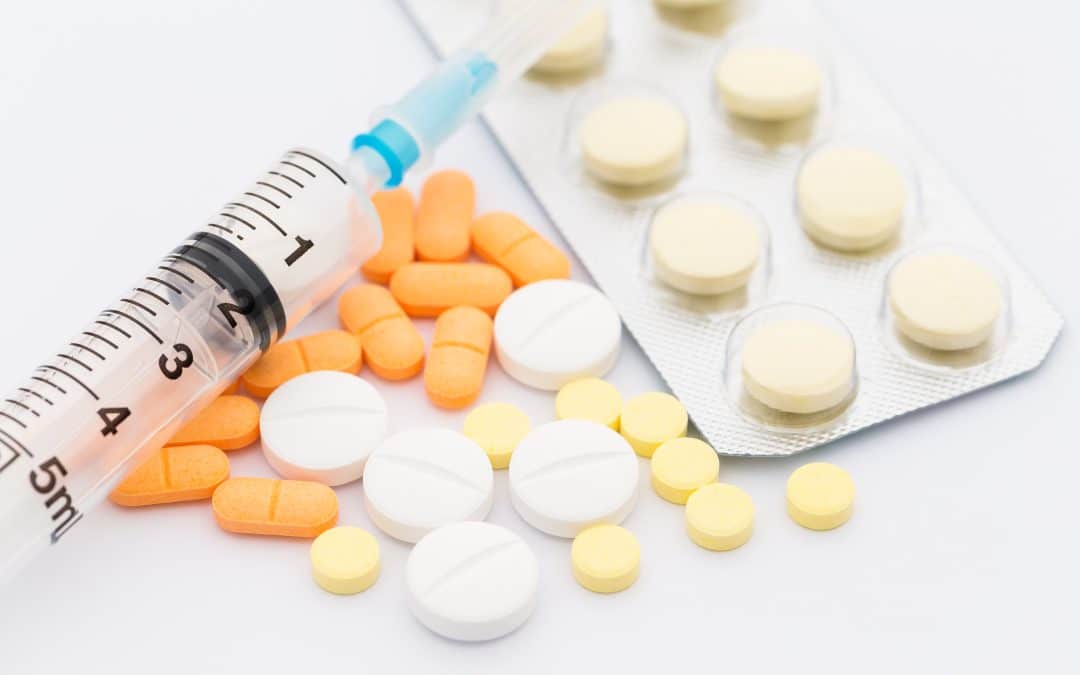Unveiling the Importance of Testosterone for Women: Empower Your Health
In the realm of hormones, testosterone has long been associated with masculinity and desire. However, it is crucial to recognize that testosterone plays a vital role in women’s health as well. Far beyond its effects on sexual desire and libido, testosterone holds numerous benefits for women’s bodies. This article aims to shed light on the significance of testosterone for women, particularly in addressing low testosterone levels and optimizing hormonal balance. By delving into the impact of testosterone on various aspects of women’s health, we uncover the key to enhancing vitality and reducing the risk of debilitating health conditions.
The Significance of Testosterone for Women’s Health
Testosterone is often overlooked as a crucial hormone for women’s health. Contrary to popular belief, it is not solely a male hormone or limited to desires and fantasies. In fact, testosterone plays an essential role in women’s overall well-being. By understanding its impact, we can harness its benefits to promote optimal health.
Understanding Hypoactive Sexual Desire Disorder (HSDD)
Hypoactive Sexual Desire Disorder (HSDD) is a condition that affects women, leading to a lack of sexual fantasies or desire. It can be distressing for the individuals experiencing it, impacting their relationships and overall quality of life. One of the contributing factors to HSDD is low testosterone levels in women.
Causes of Decreased Sexual Desire and Libido in Women
While low testosterone levels can contribute to decreased sexual desire and libido, it is important to consider other potential causes as well. Relationship issues, privacy concerns, medical problems, stress, elevated cortisol levels, and body image concerns can all play a role in diminishing sexual desire. Addressing these factors alongside testosterone optimization is crucial for a holistic approach to revitalizing sexual well-being.
Testosterone Production in Women and Menopause
In women, testosterone is primarily produced in the ovaries and adrenal glands. As women progress through menopause, the ovaries gradually reduce their testosterone production, leading to lower overall levels. This decline in testosterone levels during perimenopause and postmenopause often correlates with a decrease in sexual desire and libido. Understanding this natural process can help women recognize the importance of maintaining optimal testosterone levels.
Empowering Women Through Optimized Testosterone Levels
Optimizing testosterone levels in women offers a range of transformative benefits that go beyond sexual desire and libido enhancement. Let’s explore how testosterone replacement therapy can positively impact various aspects of women’s health:
Strengthening Bones and Muscles with Testosterone
Testosterone plays a crucial role in maintaining bone density and muscle strength in women. By optimizing testosterone levels, women can reduce the risk of osteoporosis, fractures, and muscle wasting. Strong bones and muscles contribute to overall physical resilience and vitality.
Fighting Visceral Fat and Boosting Energy
Low testosterone levels in women are associated with increased visceral fat and reduced energy levels. By addressing testosterone deficiency, women can decrease fat accumulation around the mid-section, reduce the risk of metabolic disorders, and experience increased energy and vitality.
Enhancing Well-Being and Cognitive Health
Beyond its physical benefits, testosterone also influences women’s mental and emotional well-being. Optimized testosterone levels can improve mood, mental clarity, and overall quality of life. Moreover, maintaining adequate testosterone levels may help reduce the risk of cognitive decline and conditions such as Alzheimer’s disease.
The Role of Testosterone in Insulin Resistance
Insulin resistance is a precursor to type 2 diabetes (T2D) and other metabolic disorders. Testosterone has a positive effect on insulin sensitivity, helping to reduce the risk of developing insulin resistance. By optimizing testosterone levels, women can potentially mitigate the risks associated with T2D and improve overall metabolic health.
Testosterone Replacement Therapy for Women
Testosterone replacement therapy (TRT) is a common approach to address low testosterone levels in women. It involves administering testosterone either through intramuscular injections or topical cream application. Consulting a trusted hormone doctor or specialist is essential to determine the most suitable method and dosage for individual needs.
Finding a Trusted Hormone Doctor in San Diego
When seeking hormone replacement therapy, it is crucial to find a trusted hormone doctor in San Diego who specializes in bioidentical hormone therapy for women. A qualified professional can provide personalized care, guidance, and monitoring throughout the treatment process, ensuring optimal results and overall well-being.
Conclusion
Recognizing the significance of testosterone for women’s health is crucial in promoting overall well-being and vitality. Beyond its association with sexual desire and libido, low testosterone in women plays a vital role in bone strength, muscle health, energy levels, cognitive function, and metabolic health. By optimizing testosterone levels through hormone replacement therapy, women can empower themselves to lead healthier, more fulfilling lives. Consulting a reputable hormone doctor in San Diego will ensure personalized care and guidance throughout the process, helping women reclaim their vitality and thrive in every aspect of life.
FAQ
1. Can women have low testosterone levels?
Absolutely. Testosterone is not exclusive to men. Women also produce testosterone, and low levels can have various effects on their health, including decreased sexual desire, fatigue, muscle weakness, and long-term health risks.
2. What is Hypoactive Sexual Desire Disorder (HSDD)?
HSDD is a condition in which women experience a lack of sexual fantasies or desire. It can be caused by various factors, including low testosterone levels, relationship issues, stress, and body image concerns.
3. How does menopause affect testosterone levels in women?
During menopause, the ovaries gradually reduce their production of testosterone, leading to lower overall levels in women. This decline can contribute to decreased sexual desire and other related symptoms.
4. Can testosterone replacement therapy improve sexual desire in women?
Yes, testosterone replacement therapy can help increase sexual desire and improve libido in women with low testosterone levels. It can reignite the flame of intimacy and enhance overall satisfaction.
5. Are there benefits of testosterone for women beyond sexual health?
Absolutely. Optimizing testosterone levels in women can have a range of benefits, including strengthening bones, reducing muscle wasting, decreasing visceral fat, increasing energy levels, improving well-being, reducing insulin resistance, and enhancing cognition.
6. Is testosterone replacement therapy safe for women?
When administered under the guidance of a qualified healthcare professional, testosterone replacement therapy is generally safe for women. A hormone doctor can assess individual needs, monitor progress, and adjust the treatment plan accordingly.
7. What are the methods of testosterone replacement therapy for women?
Testosterone replacement therapy for women can be delivered through intramuscular injections on a weekly basis or the application of a testosterone cream 1-2 times daily. The choice of method depends on individual preferences and healthcare professional recommendations.
8. Can testosterone replacement therapy cause side effects in women?
While rare, testosterone replacement therapy can have potential side effects in women, including acne, oily skin, unexpected hair growth, changes in vocal cords, and mood changes. Close monitoring by a healthcare professional can help manage and minimize any potential risks.
9. How can I find a trusted hormone doctor for testosterone replacement therapy?
To find a trusted hormone doctor for testosterone replacement therapy, consider seeking recommendations from healthcare professionals, researching reputable clinics or centers specializing in hormone therapy, and reading patient reviews. It is essential to choose a healthcare provider with expertise in bioidentical hormone therapy.
10. Can testosterone replacement therapy help with overall well-being in women?
Yes, optimizing testosterone levels through replacement therapy can have a positive impact on overall well-being in women. It can improve mood, energy levels, cognitive function, and overall quality of life, contributing to a sense of vitality and fulfillment.

